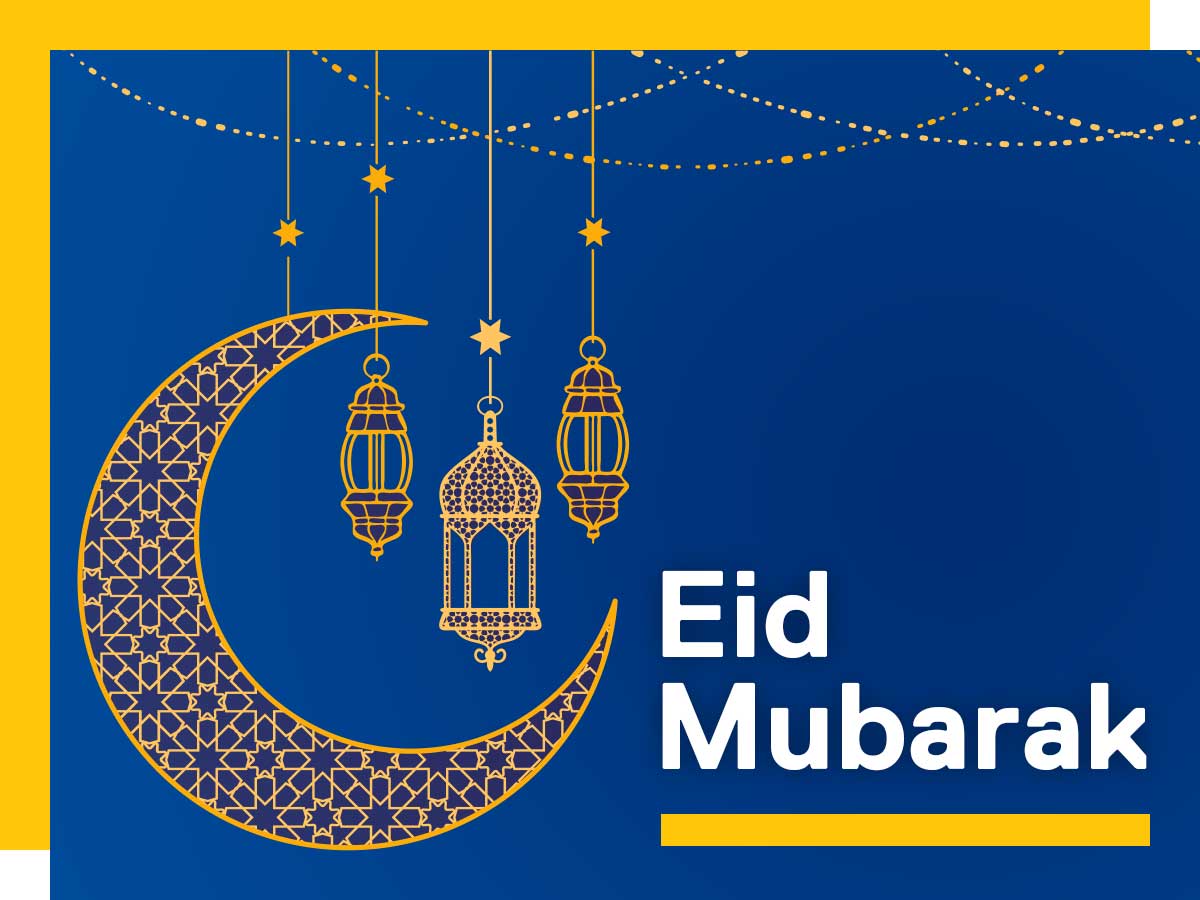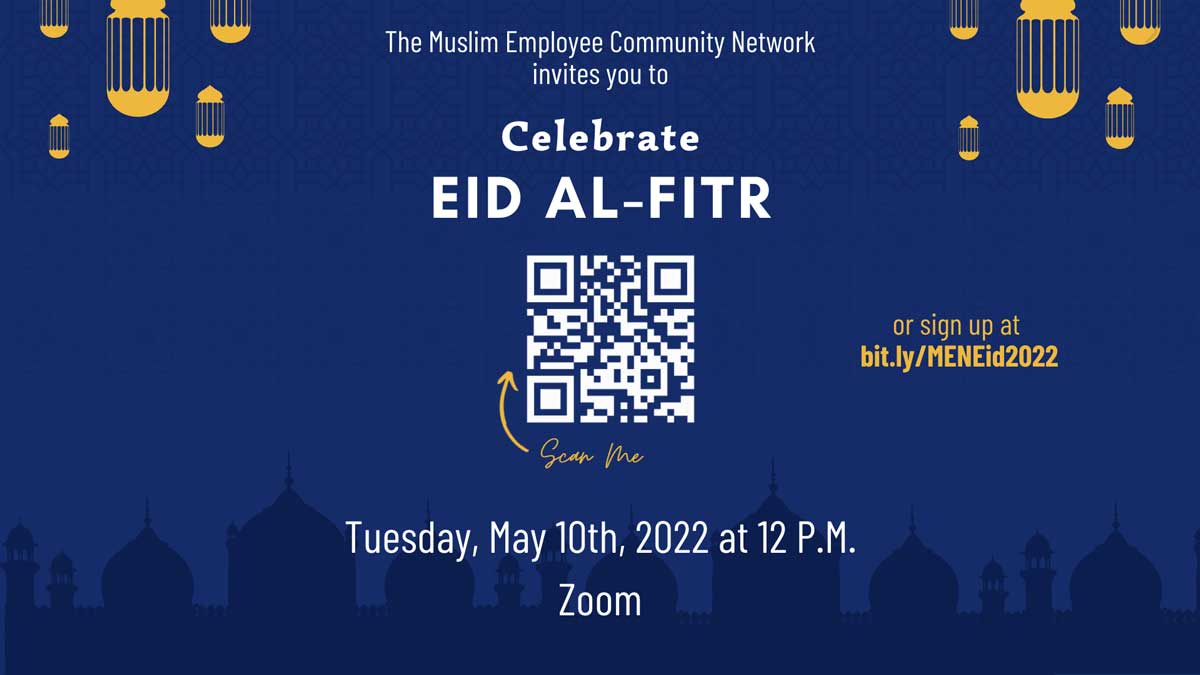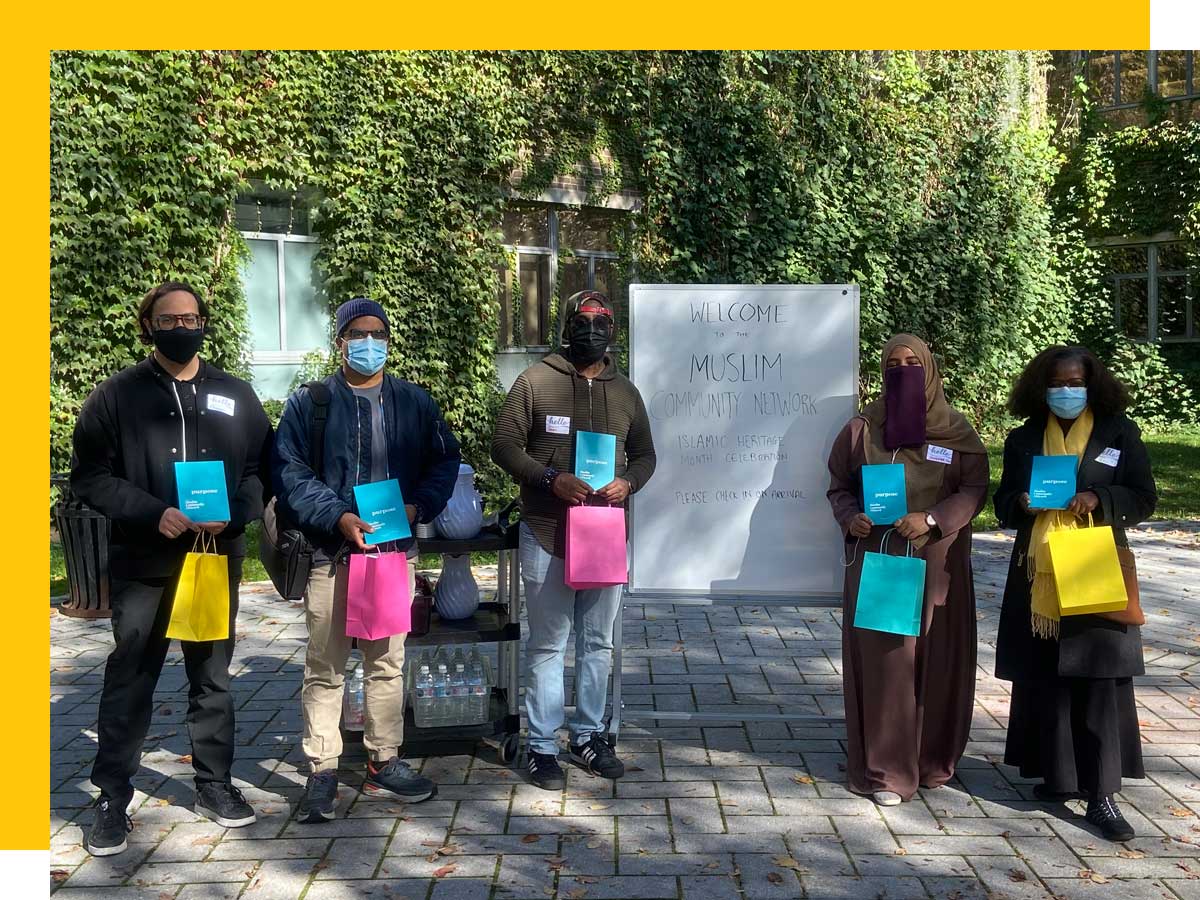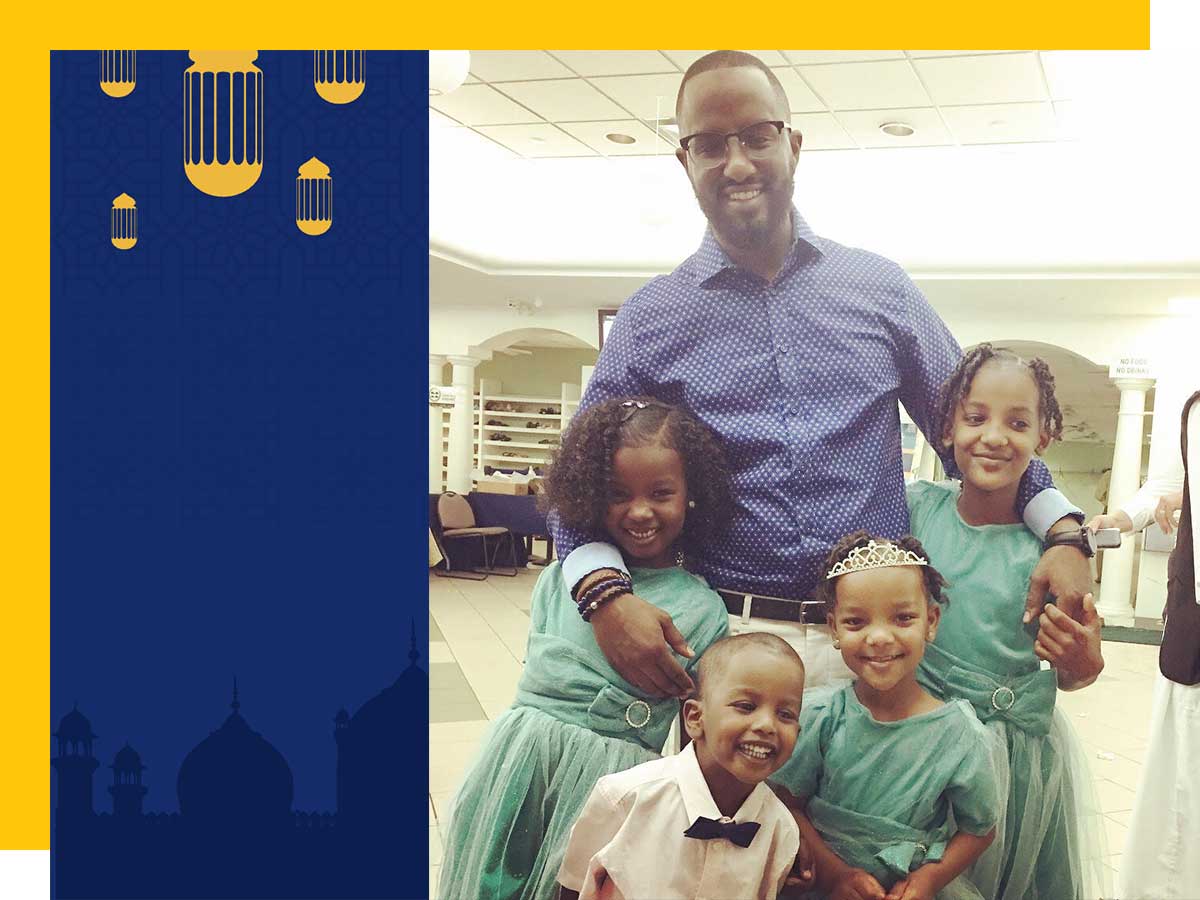Meet Farhan and Imran, Co-chairs of The Muslim Employee Network

Creating a sense of community and connection motivates Farhan Zia and Imran Ali, the co-chairs of the The Muslim Employee Network at Toronto Metropolitan University. We caught up with them to learn more about what it means to be an ally to the Muslim community and to get the inside scoop on the Virtual Eid Celebration they’re hosting on May 10. Spoiler Alert: You’re all invited!
First off, you're hosting a virtual celebration for Eid on May 10 for the community including alumni! Can you tell us a bit about what you've got planned?
We're excited to host a virtual get together for this year's Eid-ul-Fitr celebration. There are two Eids annually and this one follows the month of Ramadan. Usually, Muslims spend this day hosting friends and families, exchanging gifts and trading home cooked meals and desserts.
We'll keep things light on May 10 by focusing on reconnecting with colleagues through Zoom. We'll use some ice breakers to stir up some conversation and play some games (and maybe hand out some prizes!). As a network, we also use this as an opportunity to gather feedback from our members, to help inform our content and goals for the future.

You’re both full time employees with busy lives — why did you decide to take a leadership role with this group?
It should be said that giving back to your community is a key component of what it means to be Muslim. What that looks like depends on each individual. Each of us are active in our local communities in different ways. For example, Imran and his family are involved with his local masjid and Farhan holds a position in his condominium leadership. We bring this up to say that giving back to the community is second nature to each of us and we're always looking for opportunities to contribute.
Both of us had been involved with the Muslim Employee Community Network prior to being asked to succeed the founding co-chairs, Sarah Bukhari and Sakeena Mihar. We each had different motivations. For Imran, who identifies as both Muslim and as Black, it was important to demonstrate how Muslims are a diverse mix of people and cultures. Farhan, found himself looking for a sense of belonging and community at the time when the Muslim Employee Community Network was founded, and is looking to help others find the same in the Network.

A group of Muslim staff and faculty met in Toronto Metropolitan University's quad to celebrate Islamic Heritage Month in October 2021. From left: Farhan Zia (co-chair), Salman Rana (member), Imran Ali (co-chair), Sakeena Mihar (founding co-chair), Sarah Bukhari (founding co-chair).
What does it mean to be an ally of the Muslim community?
Firstly, being an ally means that you need to check your inherent and conscious or unconscious biases at the door. Muslims have a long history of being misrepresented in media, popular culture and political discourse. We ask allies to look beyond the superficial, physical or stereotypical. For example, many associate Muslims with middle eastern men and women in traditional clothing but, what some might not know is that, about 20% of Muslims in the US identify as Black.
Instead of focusing on what clothes we do or don't wear or what food we don't eat, engage us on what we think or feel. That means educating yourself on Islam. You may have heard that Islam means peace. While, yes, that meaning implies political peace it also extends to inner peace and community harmony. Islam moves with people across the world (there are 1.8 billion of us!) and it looks and is practiced very differently around the world. As a result, there are many and varying intersections of faith and culture, so don't be surprised if you talk to two different Muslims and they have different beliefs, practices, opinions and customs — they are two different people, after all.
It's okay to have difficult conversations or to ask questions; we just ask that you humanize the conversation. Remember that individuals deal with challenging conversations in different ways; so some will have strong political stances and others will try their best to ignore certain headlines in the name of self-preservation. A core principle of our belief system is to be respectful of others and their beliefs, so let's unite on our commonalities and respectfully inform each other of our differences.
For anyone looking for a first step to take, please visit our website where we've just published a tip sheet for being an ally during Ramadan.

Imran Ali with family members celebrating Eid-al-Fitr.
What are you most looking forward to this Eid?
Congressional Eid prayers in a community hall or masjid as it has been a few years since we've been able to do that. It's important to see other members of the community and feel the spirit of the holiday.
We can't stress enough the importance of community and connection. There's something special when you're around others who share your way of life. It's a sense of comfort that's difficult to describe. Muslims often refer to it as a brotherhood/sisterhood but it's the freedom to be yourself without having to explain or justify what that means to others.
To learn more about The Muslim Employee Network visit their website.